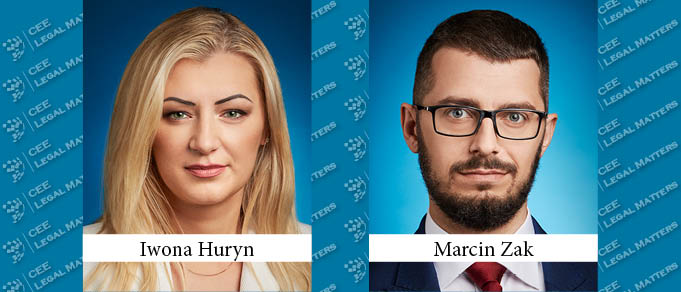With GDP growth for 2019 projected to be approximately 4%, the Polish economy remains strong, and the country’s real estate sector continues to set new records. The low availability of housing, strong domestic consumption, and stable industry production have boosted the profitability of real estate investments. Demand for land is high and developers compete fiercely for the shrinking number of attractive spots. In August 2019, a new law came into force which may make real properties held in a right of perpetual usufruct (RPU) more attractive than they used to be.
RPU is very similar to ownership, as the title holder (the perpetual usufructuary) has almost the same rights as the owner of the property. There are a few main differences: (i) the usufructuary’s obligation to pay an annual fee to the owner, (ii) it is limited by time (usually 99 years); and (iii) the manners in which the land may be developed are restricted to those set out in the relevant instrument (whether administrative decision or agreement) that created the RPU. Before the appearance of the new law, this last difference was often problematic, as many RPU instruments were issued in the early 90s and restricted the permitted development to the manner of use at the time. As a result, there are many formerly industrial RPU properties allowed only to be used for industrial purposes which are now located in areas zoned as residential or office. Such situations created risks for developers. First of all, amending the allowed-use RPU to match the zoning plans of indented developments required the consent of the owner – who could either refuse to grant it, or could demand an additional fee to do so. For example, the City of Warsaw used to ask for up to 12.5% of the land value for such modifications. Moreover, construction authorities sometimes refused to issue building permits, arguing that the intended development, even if in line with local zoning provisions, infringed the RPU’s conditions.
The August 2019 amendment has created a more favorable situation for developers, as both the owner and the perpetual usufructuary may now request a change of the purpose of perpetual usufruct if there is a permanent change in the manner of use of the property stipulated in the decision or agreement. If the perpetual usufructuary submits such a request, the relevant authority must reply within two months. If the authority does not agree to change the purpose of perpetual usufruct or does not reply, the perpetual usufructuary may file a claim in the common court requesting that the court order the change of purpose. In addition, if, a change in the purpose of perpetual usufruct reduces the applicable interest rate of the annual fee (for example, from 3% of the land value to 1% when the purpose of perpetual usufruct changes from office to residential), the parties will be able to set a one-off fee for the benefit of the property owner – but no more than twice the current annual fee for perpetual usufruct. This is a major change, as previously the issue of payment for alteration of the RPU agreement was not addressed. Therefore, owners are no longer entitled to force the perpetual usufructuaries to pay extra to be able to develop the land or to simply deny the modification of the RPU conditions.
The construction rules were also amended so that authorities are no longer entitled to refuse a building permit for investments contrary to the RPUs’ designated purposes. Thus the position of the perpetual usufructuary has also been strengthened in this respect.
The changes affecting RPU properties are designed to make RPU as ownership-like as possible, which may eventually lead to the liquidation of the RPU and the transformation of current RPU holders into owners. The new law makes many RPU properties more attractive as their development potential is enhanced and costs are limited.
By Tomasz Stasiak, Partner, Iwona Huryn, Senior Associate, and Marcin Zak, Senior Associate, Wolf Theiss Poland
This Article was originally published in Issue 6.11 of the CEE Legal Matters Magazine. If you would like to receive a hard copy of the magazine, you can subscribe here.

